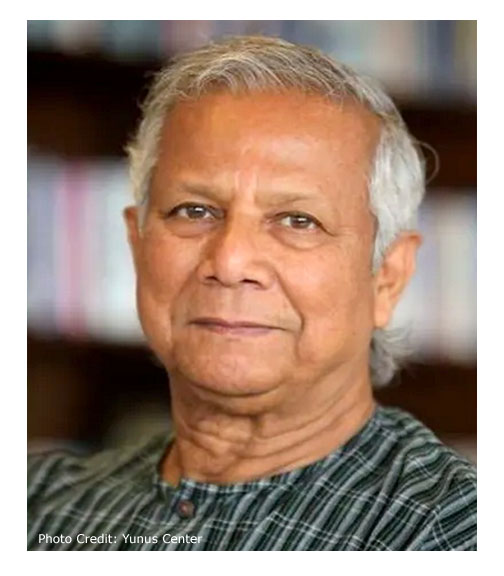“When bad men combine, the good must associate; else they will fall, one by one, an unpitied sacrifice in a contemptible struggle.” Edmund Burke 1770
It is rare that major U.S. media outlets cover events in Bangladesh. The most common exception has been during the natural disasters that have befallen the country over the years. With some regularity, Bangladesh’s perennial political unrest has also generated press coverage. Less frequently, Bangladesh has been the subject of “good news” stories related to the country’s remarkable achievements in addressing development challenges since independence. Of late, Bangladesh has again been in the news as global leaders have focused attention on the persecution of Nobel laureate Professor Muhammad Yunus, the conviction of human rights defenders Adilur Rahman Khan and Nasiruddin Elan, and on the victims of enforced disappearances in the country. Predictably, the Bangladesh government’s defenders have responded to these criticisms with attacks against those who have highlighted the regime’s misdeeds. Few believe that Prime Minister Sheikh Hasina and her allies will be persuaded by these letters and statements, begging the question of whether they serve any purpose other than fueling Bangladesh’s partisan divide. As I reflected on this question, I was reminded of the Edmund Burke’s 18th century warning about the perils of good men standing idly by while evil is done.
Those who defend the Bangladesh government’s violations of human rights and anti-democratic actions usually proffer one of several arguments. First, they argue from a realpolitik perspective that highlighting these violations will push Bangladesh into the arms of China and Russia and deny the West an ally in a larger struggle. Often, they also point to the failures of Bangladesh’s opposition when it was in power and argue that any efforts to weaken the Awami League government will only result in worse leadership for the country. Others will point to the incumbent’s record in promoting large scale infrastructure projects or other indicators of “development” and argue that continuity is required for these to continue. Some will change the subject and point to human rights violations in other countries and question why Bangladesh is being singled out for criticism. Finally, the regime’s defenders will engage in ad hominem attacks against their critics.

At the same time, the regime’s defenders will rarely (if ever) address the specific complaints lodged by their critics. Take the issue of enforced disappearances, which prompted numerous statements by global human rights defenders who marked the international day against enforced disappearance on August 30. Amidst the regime’s pushback, there were no voices who sought to defend the practice itself. No government spokesperson or online keyboard warrior attempted to justify snatching opposition leaders from their families and denying small children of the presence of their fathers. None of the Awami League’s legal experts sought to justify the constitutionality of disappearing the government’s critics. Instead, the best they could do is to use one of the strategies outlined in the previous paragraph to justify their misdeeds.
So why should human rights defenders continue to highlight abuses when doing so only results in criticism (or worse) and does not change the abusers’ behavior? Why stand against the “bad men” who perpetrate this evil? Here I recall the inspirational words of Martin Luther King Jr who reminds us that “the arc of the moral universe is long, but it bends toward justice.” The struggle for democracy and human rights may be long and difficult, but it is worth fighting for what is right. So, let the good continue to associate.

